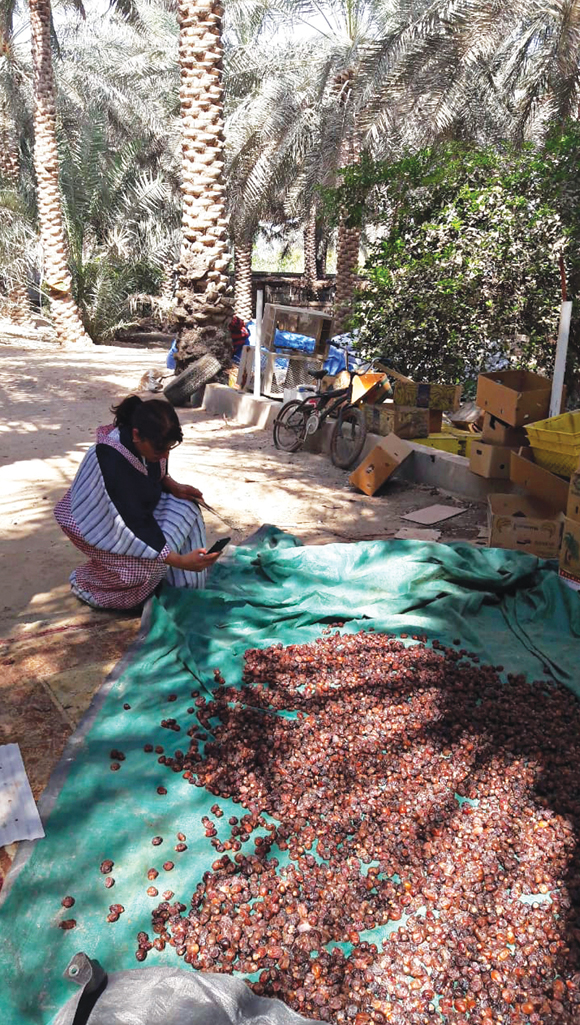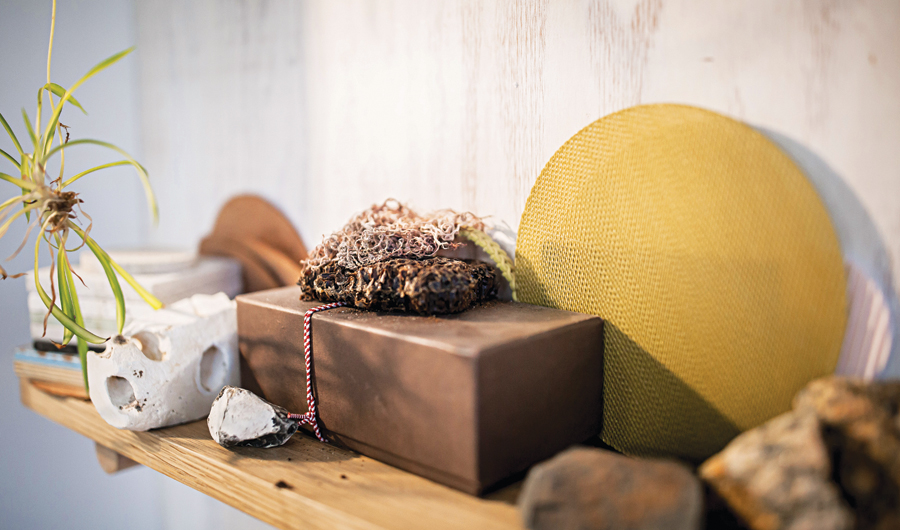Fri, 2018-11-09 23:28
LONDON: Here is a thought for all you home decorators: What about a bookcase made of compressed leather? Or tiles made of coconut shells?
What about using bricks made out of discarded bathroom ceramics (thats right, old sinks and toilets)? And for something really wacky, what about fabric made out of milk?
Believe it or not, all those materials are already available, along with many more that are recycled, repurposed and reused in all manner of unexpected ways.
If sustainability is the buzzword of our time, then Seetal Solanki is the queen bee of the concept, and she is spreading the message far and wide, including to Saudi Arabia.
Solanki recently returned from Tanween, the three-week event held at the King Abdulaziz Center for World Culture (also known as Ithra) in Dhahran that showcases creativity in the arts, sciences and entrepreneurship. Audiences at her packed workshops could not have been more enthusiastic, or eager to learn, she said.
“The open-mindedness was inspiring. Their questions were very critical and interrogative. They asked about scale of production and were open to all ideas.”
It was Solankis second time at Ithra, and she is now part of a two-year project to map out the local resources available in the Kingdom to find which can be used in a different way to reduce waste.
Saudi Arabias consumption of plastic is the highest in the Middle East and 20 times higher than the global average. The Kingdom consumes twice as much plastic as any of its GCC neighbors and every year generates plastic waste equivalent in weight to 2 million cars. Each individual gets through an average 40 kilos of plastic bags every year.
The rest of the Gulf has little to boast about, however. The dubious accolade of the worlds top producer of waste per capita goes to Kuwait, a tiny country of 4 million people. The huge quantity of rubbish and the lack of properly maintained landfills have led to groundwater contamination, unregulated burning and the release of toxic gases.
Reducing waste is now a priority and this means re-examining all materials and devising different uses for anything and everything.
Solanki, 37, is the founder of Ma-tt-er, a research design studio that researches and explores the past, present and future use of materials.
Take paper coffee cups. Millions are given out every day. Since the cups are made of paper, people probably believe they are easy to recycle. In fact, each cup has a plastic lining. But this can be removed and is useful for making electric cables. A paper company in the north of England is already doing this (and recycling the paper cups into high-quality paper and card). Why not replicate it in the coffee shop-loving societies of the Gulf?
The companies Solanki and her team have advised on sustainability range from corporate giants such as Ikea and Nike to a small hotel chain in Bali, Indonesia, which is committed to using only local materials, including coconut shell tiles. They are experimenting with volcanic ash as a glaze for ceramics.
“The core of the business and work is looking at alternative ways of manufacturing and also changing the way we look at materials,” she said.

From a shelf in her East London studio Solanki takes what looks and feels like a block of wood. In fact, it is offcuts of leather, discarded by the fashion industry and compressed into a material that is more than strong enough for furniture-making.
Next she takes a big lump of what looks like white gypsum, but is, in fact, crushed mussel shells.
A piece of deliciously soft, fluffy fabric turns out to be made from seaweed that has been dried and spun into yarn. Bricks repurposed from old bathroom sinks are already being used in construction. Corn husks make a wonderful veneer.
Most astonishing of all is a square of cream-colored wool made of casein, a high-protein byproduct of milk that bodybuilders take as a nutritional supplement.
Casein looks like milk curds but behaves like plastic. It can be heated and molded into many forms, and can be made into furniture or turned into yarn that can be spun, knitted or woven. It has the versatility of plastic without the environmental damage.

Saudi Arabia has plentiful limestone, clay, granite and marble. It also has an awful lot of dates, and while using the wood of the date palm tree for building and the fiber from the leaves for rope is obvious enough, finding a use for all those discarded date stones is more challenging.
But research is already underway, according to Solanki, who has a masters degree in textile futures from Central Saint Martins art school and also teaches at the Royal College of Art.
One of the biggest hits at Tanween this year was petroleum-free plastic made from starch, water, vinegar and glycerine. In filament form, it is used in 3D printing, but it can also be produced in sheets. Whatever the form, it is biodegradable and will not clog up the oceans and kill marine creatures.
“Oh, yes, they loved it,” she said. “But, then, they loved everything. These are the people — the young designers, engineers and scientists — who can introduce change, and there is such a hunger and thirst there for knowledge and innovation. That is the only way I can describe it. And its just super-exciting.”
 Main category: Saudi ArabiaTags: Saudi ArabiaEditors ChoiceSaudi ArtsustainabilityITHRA
Main category: Saudi ArabiaTags: Saudi ArabiaEditors ChoiceSaudi ArtsustainabilityITHRA
[contf]
[contfnew]

Arab News
[contfnewc]
[contfnewc]





